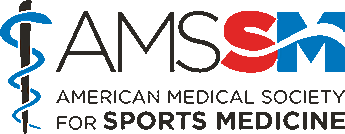 What is it? Myocarditis is a condition characterized by inflammation and injury of the heart tissue. Causes include infections (e.g. viruses, bacteria or parasites), autoimmune diseases (e.g. lupus, scleroderma, sarcoidosis), physical agents (e.g. radiation, electric shock), cancer or toxins (e.g. medications, drugs, metals). Viral infections are the most common cause of myocarditis in the United States and Europe. The most common cause worldwide is “Chagas’ disease,” an infection from the parasite Trypanosoma cruzi. More recently, myocarditis has been considered a high-risk complication of prior coronavirus infectious disease of 2019 (COVID-19) infection. Athletes with ongoing symptoms of chest pain, palpitations, shortness of breath and exercise intolerance should be evaluated for COVID-19-related myocarditis. The majority of affected individuals develop symptoms similar to a viral infection early on in the disease process. Although most cases of myocarditis are mild, some cases can lead to serious heart problems and even death. Complications of myocarditis include heart failure (reduction in the heart’s pumping function) and cardiac arrest (the heart suddenly stopping). Symptoms Symptoms of myocarditis may include:
Sports Medicine Evaluation and Treatment A sports medicine physician will review symptoms and ask multiple questions about a patient’s current health and medical history. A full physical exam will be conducted. Blood tests, an electrocardiogram (ECG or EKG) to measure the electrical activity of the heart, and chest x-rays will most likely be performed. An echocardiogram (“echo”) may be done to see how the heart is pumping. Cardiac magnetic resonance imaging (MRI) may be considered based on clinical suspicion of myocarditis, particularly following infection with COVID-19. More invasive tests, including a biopsy or sampling of the heart tissue may be necessary. Treatment & Return to Play Most cases get better on their own, with no short- or long-term complications, and common treatment options include regular rest and taking medications. If the cause is infectious, antibiotics or antivirals may be needed. If the athlete is at risk for blood clots, a medication that thins the blood may be prescribed. In cases of heart failure, specific medications may be needed, such as medications that make one urinate, or a class of blood pressure medications called angiotensin-converting enzymeinhibitors (ACEI). Sometimes, a device will be placed in the heart if it is not beating correctly, and in severe cases, a heart transplant may be required. Regular follow-up, including repeat cardiac imaging may be required in some athletes, and returning to exercise or sport should be gradual and under the supervision of a sports medicine physician or cardiologist. AMSSM Member Authors References Category: Cardiovascular (Heart) Issues, Chest and Abdomen, [Back] |

